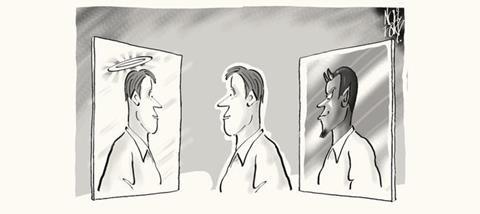
It’s a conversation that the now President of the United States bitterly regrets. Unaware that he was being recorded, he was caught making horribly abusive comments about the way he treated women. His exact words are well known, releasing me from the need to stain this page by repeating them. Quite rightly, the world lined up to utterly condemn his behaviour, and the rage wasn’t abated by the President’s trumpeted assertion that he was just engaging in “locker-room talk”. Having insulted women everywhere, he was now sullying the reputation of his own gender, implying that all men engage in misogynist chatter while preparing to play badminton. We do not.
Similar outrage is reserved for Christian leaders who are caught with their proverbial pants down, and again, the anger is understandable. We rightly expect those who lead us to put their lives where their words are – to be an example. Leadership in all spheres surely calls for integrity and character, a forgotten truth in a world where political speeches routinely need to be fact-checked, live, on air, as the words are being spoken.
But I also worry about those who have never been caught in the popping flashbulbs of scandal, who point the finger at the failings of high-profile leaders, but then insist that they themselves could never fail in the same way. “I don’t understand how he could do it,” said a fellow minister, shaking his head in bewilderment at the breaking news of yet another incident of adulterous liaison by a leading Christian. And then he added, “I could never, ever do such a thing.”
Those who are blind to the terrible potential of their fragile humanness are surely more likely to crumble in the face of temptation. Some of us have not committed adultery, but it wasn’t steely moral fortitude that has kept us. We simply haven’t had the opportunity, and so we remain untested. While we might determine to never fail, we shouldn’t conclude that we never could fail.
The late, great, Charles Colson, himself a man who had known spectacular public failure during the Watergate scandal, records a moment when one man came face-to-face with the potential of his own fallenness. Yehiel Dinur, a survivor of Auschwitz, testified against Adolf Eichmann, the Nazi architect of the Holocaust at the Nuremberg trials. During the 74 1961 proceedings, Dinur walked into the courtroom to face the man responsible for his incarceration in that hellish camp 18 years earlier. Suddenly a dam broke insider Dinur, and he began to sob uncontrollably, then fainted, collapsing in a heap on the floor as the judge yelled for order in the packed courtroom. But Dinur was not overcome by hatred, paralysed by fear, or tormented by horrid memories. Dinur was devastated by the awful realisation that Eichmann was not some god-like, superhuman army officer who had sent so many to their deaths. Eichmann was just an ordinary man, just like the guy next door. “I was afraid about myself,” said Dinur. “I saw that I am capable to do this. I am…exactly like him.”
So, as followers of Christ, let’s never forget the stunning potential for beauty that is ours as saints, impelled and steadily transformed by the Holy Spirit. Yet with that, let’s never lose sight of the dark potential of our human fragility either. A sober assessment of ourselves will lead us to affirm that with God’s help, we won’t, but let’s never say that we never could.
Jeff Lucas is teaching pastor at Timberline Church, Colorado. He is an international speaker, author and broadcaster Follow Jeff @jeffreylucas



























